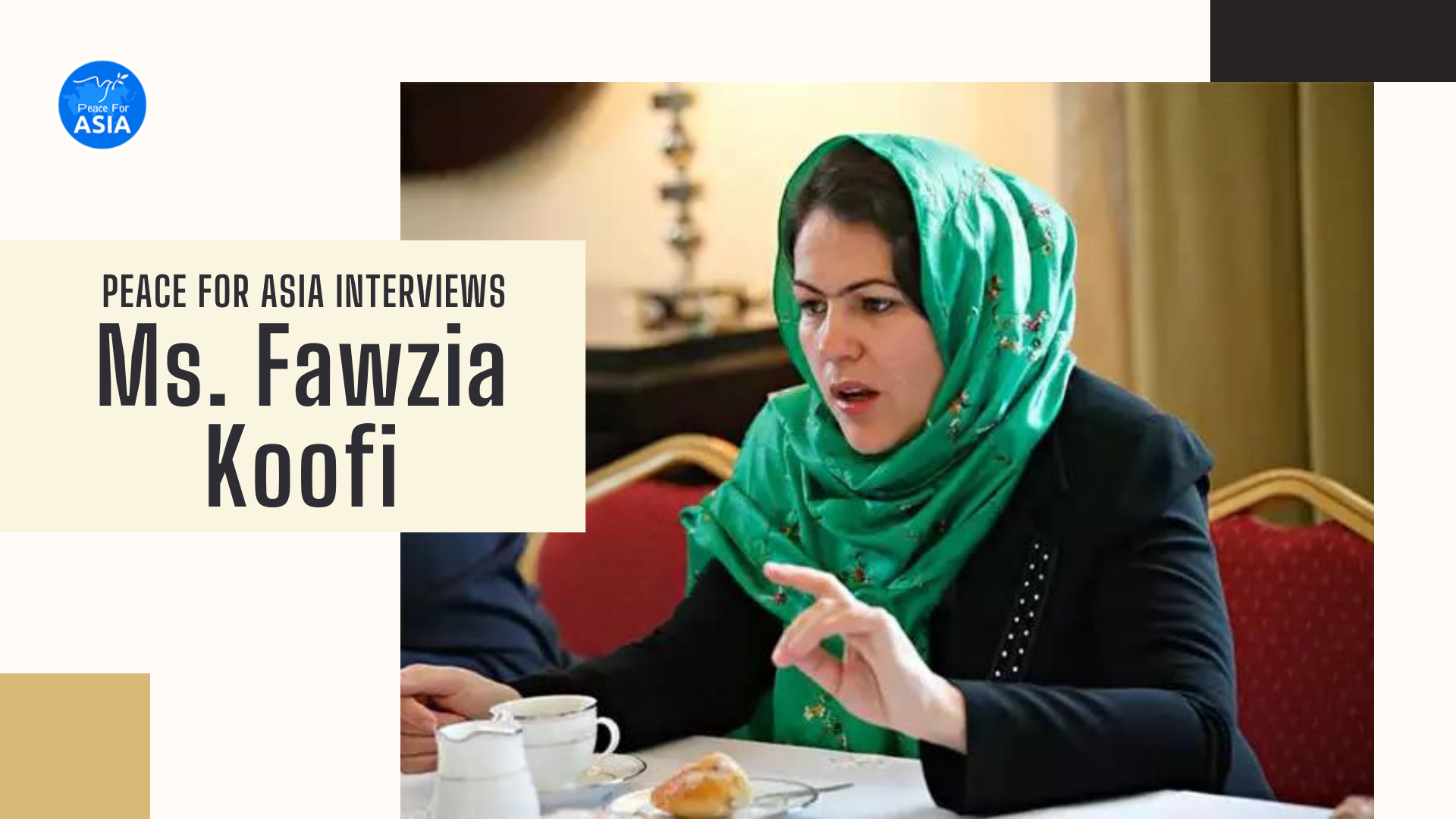Peace for Asia interviewed Ms. Fawzia Koofi, a former parliamentarian from Afghanistan, who served as the Vice President of the National Assembly. During the negotiations with the Taliban, Ms. Koofi was part of the negotiations team in the Doha Talks. Besides negotiating on several critical issues surrounding power-sharing, women’s freedoms and safety became her priority in these talks. Ms. Koofi believes that post-withdrawal Afghanistan has become the foremost victim of rivalries and polarities in global politics and the international community is yet to act to assure basic guarantees to Afghan women and minorities.
Question: What are your insights on the present situation faced by women and minorities in Afghanistan?
Ms. Koofi: The situation in Afghanistan is disturbing as we often come across reports of restrictions on people. What is worrying is the growing control and surveillance people are subjected to by the Taliban. I am constantly informed about women being stopped and interrogated at the checkposts when they step out of their houses. The international community does not realise the interlinkages between Human Rights and security given the present situation in Afghanistan.
Question: The international community played an ambivalent role during the Doha Talks, which is believed to be one of the reasons why women’s concerns were not heard following the regime change. How can the international community still play an effective role in coercing the Taliban to give women their basic rights?
Ms. Koofi: First of all, the international community needs to take a united stand on this issue. Right now, these countries are divided on Afghanistan. America’s hasty exit from Afghanistan came across as a policy failure, that is preventing many countries from engaging with the Taliban over serious issues. A divided international community will only benefit the Taliban. A cohesive approach pressurizing the Taliban to agree to the political process is urgently needed. The said political process will only be meaningful if it is led by women.
Question: What empowers the Taliban to renege on the promises made in the Doha Talks?
Ms. Koofi: American withdrawal empowered the Taliban as they did not feel the need to continue dialogue once the forces had left. As a member of the Doha talks, I was a witness to this change of attitude in a matter of two years. The moment President Biden announced withdrawal, the Taliban lost interest in talks.
Question: Can Afghan women still play a role as a strong pressure group?
Ms. Koofi: Nationally and Internationally, women are the only visible force against the Taliban. Obviously, there are other groups from the erstwhile political establishment too who have been pushed to take up arms to avoid oppression and targeted killings. But women constitute the most visible and consistent opposition to the Taliban. We are continuously requesting the Taliban to come to the negotiation table but it does not look like they have the moral power to negotiate with us.
Question: Do you think the international community can still go back and reset some of its decisions that gave the Taliban an undue advantage after the withdrawal?
Ms. Koofi: The international community is losing its leverage after the withdrawal, plus the aid that goes to Afghanistan is only empowering the Taliban.

